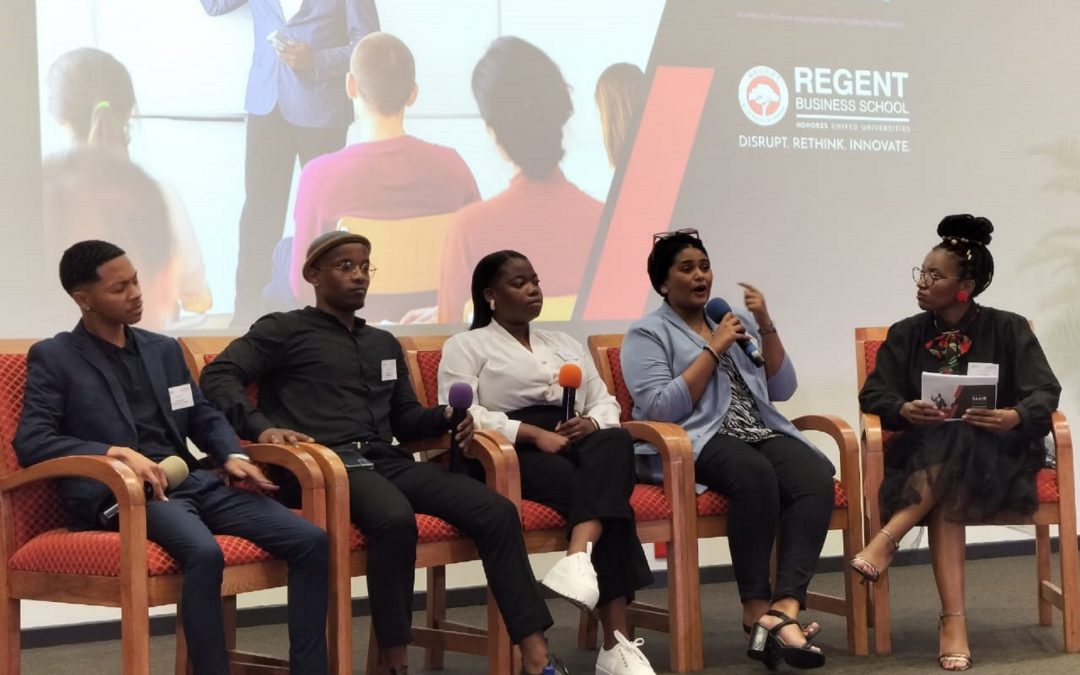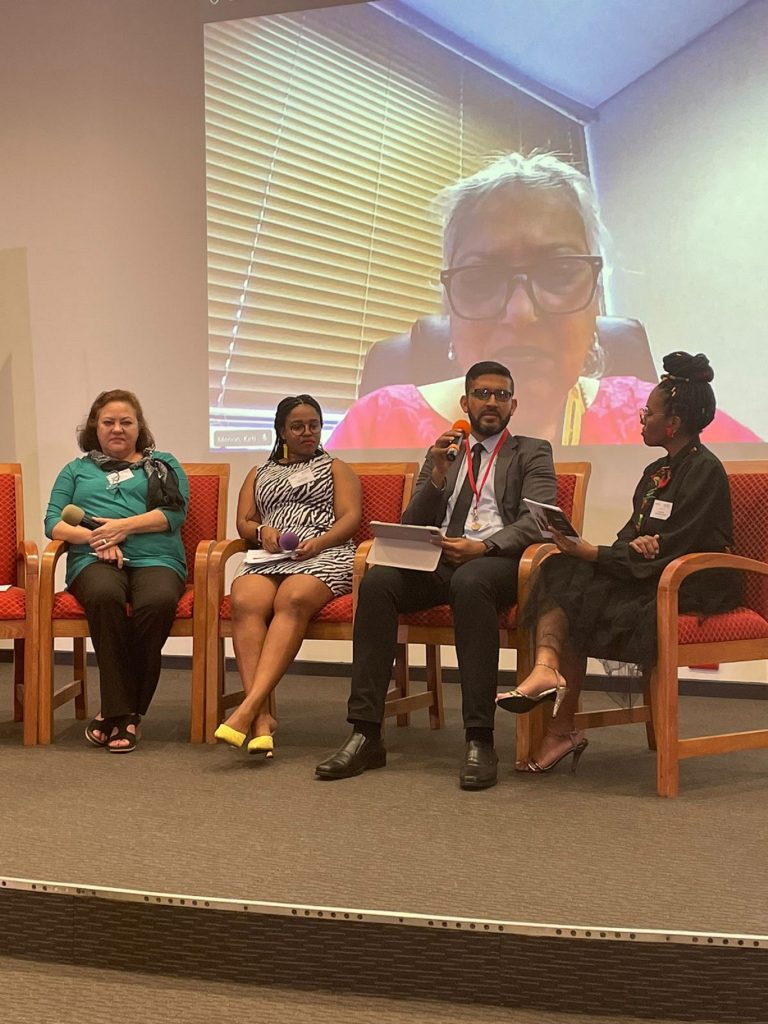The Covid pandemic has reminded institutions of higher learning to revisit their curricula with a view to engage with deep programme reform in order to remain relevant.
So said Professor Ahmed Shaikh, Managing Director of Regent Business School which recently hosted the Southern African Association for Institutional Research (SAAIR) Quality Forum with the theme: “New Innovations in Teaching and Learning: Do these innovations lead to quality teaching and learning?”
Professor Shaikh said educators find themselves in a changing world wherein the rate of change, uncertainty and flux is without precedent. He said higher education was already facing deep challenges before the pandemic, largely because of the impact of exponential and disruptive technologies and those challenges have been compounded by the lasting impacts of a global pandemic.
Individuals from various institutions were invited to unpack this theme:
Lerato Makuapane, a Research and Project Coordinator of the Analytics and Institutional Research Unit at University of the Witwatersrand opened up the session with the topic: “Out with the old, in with the new! How the pandemic has influenced innovation in teaching approaches.” She touched on staff experiences of how they coped with the adaptation, abandoning the ‘old’ and familiar for a new way of teaching under Emergency Remote Teaching (ERT).
“Work and life balance together with much higher workloads appeared to be a major challenge and while a range of previously under-utilised technology enablers were introduced into the Teaching and Learning (T&L) environment, a key success factor in the T&L process had been lost – the human interaction.
“Of course, the pandemic became a double-edged sword, in some respects, as it took such a catastrophic phenomenon to force all of us to adopt and accept technology as a vital medium in the T&L process, but at the cost of person-to-person connections that are part of our hardwiring,” she said.
Dr Ronel Blom, the Academic Dean at Regent Business School covered the second part of the topic, “Out with the old, in with the new! How the 4IR has influenced innovation in teaching approaches.” She highlighted as part of her presentation the strong emergence and awareness of student mental health.
Dr Carin Stoltz-Urban, the Quality Assurance Manager for Teaching and Learning at the Inscape Education Group, presented on the topic: “Examples of innovative approaches: What has worked really well?” She shared some interesting insights from her institution on an effective approach has been to introduce Continuous Professional Development (CPD) in a non-threatening manner through communities of practice.
Dr Stoltz-Urban shared some interesting insights from her institution on how they have strengthened the student and academic relationship through technology with a strong emphasis on staff development, mentioning that an effective approach has been to introduce Continuous Professional Development (CPD) in a non-threatening manner through communities of practice.
Dr Cheng-Wen Huang, Senior Lecturer and Prof Daniela Gachago, Associate Professor from the Centre for Innovation in Learning and Teaching at the University of Cape Town (UCT) shared insights from their institutional survey with academic staff unpacking the “Pains, Gains and Losses in Assessment During the Pandemic.”
Hoosen Essof the redHUB and Operations Manager at Regent Business School, discussed the topic: “Do innovative approaches produce better graduates” which
explored the question of whether innovative approaches produce better graduates and drew attention to the need for students to be job-literate.
Essof drew close attention to the traits required for the future world of work and the tension between realistic expectations of students and what can be achieved through the curriculum. The presentation also reminded the participants the value and importance of work-integrated learning and how to think differently about traditional approaches to internships.
Dr Mario Landman, the Dean of Design at The Da Vinci Institute for Technology Management, focused on whether “Innovative Ideas Equal a Quality Learning Experience and how do we know it has?” He honed on student digital literacy and the ability to navigate technical platforms meaningfully for effective learning
Dr Kirti Menon a Senior Director of the Division for Teaching Excellence at the University of Johannesburg reminded the panel that technology is not the driver of the curriculum and related pedagogy but is rather an enabler, stating that we now have the opportunity as we emerge from the pandemic to reflect deeply and intentionally on how technology can be used to shift the way we teach, and the way students learn.
Lance Latola, a BCom Law student from Regent Business School; Esethu Mahlumba, a Bachelor of Honours: African Languages and Literature student from UCT; Khula Nxumalo a Diploma IT Management student from Rosebank College and Dr Keiron Boosi, a MTech: Chiropractic graduate from Durban University of Technology formed part of the student panel discussion.
The students highlighted the disparity between their backgrounds and levels of preparedness for the remote teaching environment. They also highlighted that the levels of anxiety experienced under remote teaching conditions were a significant challenge which placed a huge strain on their own mental health and wellbeing.
Students underscored the need to train the teachers – specifically in terms of assessment methodologies and more importantly, to facilitate these with students. They also raised questions on the need to reflect on how learning may occur rather than following the old familiar path of memory retention under timed conditions, which yield little benefit. The students closed the discussion that institutions have so much to learn from one another and that they should be open to sharing these with one another.



